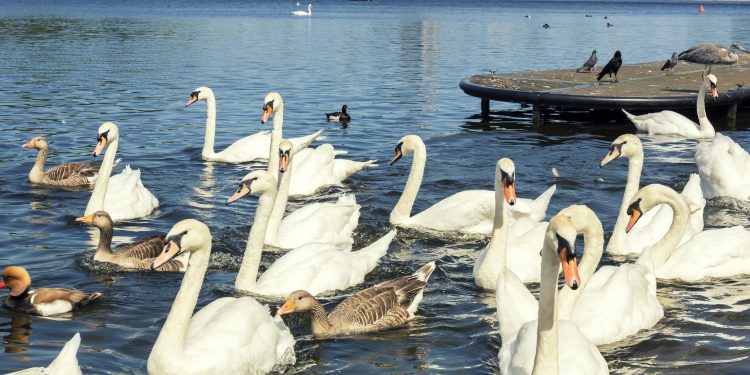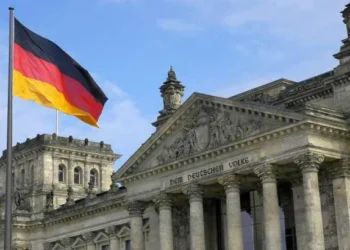Pause a moment to remember how nature rushed to reclaim its spaces amid eerie lockdowns. How waters in Venice cleared by the hour, welcoming swans to cruise the canals once more. How in Wuhan, when the choking smog cloud thinned, soft blue skirted the sky like a familiar lover. How wildflowers pushed their way through pathways in nature’s charming messiness! It felt like emerging from a fire-breathing dragon’s throat.
The unexpected standstill for life as we knew it whispered a profound lesson, urging us to rethink our ways. And we were waking up. Our heartfelt voices flooded Twitter, pleading we could no longer afford to spend trillions on nice-to-haves and plow what little remains to stop baking the planet. Scientists, weary of their desperate warnings forever ignored, prayed we would at last, listen.
But when the virus weakened and the industries roared back, our voices grew distant, and the shared spirit lost its fire. Content with a small win, the best we could do was pick up our lives and party. Not that we didn’t deserve a break; we’ve had our share of pains and penalties. But we’re dragging it out when deep thinking is overdue.
We must stop overlooking the far graver disaster we’re orchestrating hand in hand: the climate crisis. The dire state of our surroundings today is a stark and unerring mirror reflecting our extravagant ways back to us. We’ve fallen under the spell of modern comforts, consuming resources voraciously and often needlessly. The modern man draws his living as a parasite, cutting away at nature’s flesh with countless cuts, small and big. We eat ten times more than needed, stuff our wardrobes with clothes we never wear, and stroll the streets with a plastic bottle in each hand, oblivious to its hazardous impact on nature. Did you know that we eat, drink and breathe thousands of tiny plastic particles each year?
We’re all doing our share to author this crude and cloddish experiment against nature. Here is how our negligence creeps on us thus far:
We’ve witnessed the most devastating wildfires Canada has yet seen, forcing thousands of indigenous people out of homes; the most hazardous cyclones and typhoons ever recorded in India, Indonesia, and the Philippines; the longest-lasting heatwave ever recorded in Siberia; the unprecedented surge of tropical storms in the Atlantic; the record-breaking heatwave in Canada, roasting a billion sea creatures alive; a simultaneous extreme heatwave in the US’s Pacific northwest killing 200 people, and proved “virtually impossible” without destructive human activity.
In a mere heartbeat in Earth’s history, we’ve accumulated more heat-trapping carbon dioxide in the atmosphere than at any point in the past two million years. We’ve transformed our oceans into smothering sponges of our excesses, absorbing heat equal to five Hiroshima bombs plunging into water each second. Does it even need reiteration that by killing our planet, we’re killing ourselves? Humans are just as much nature as the ocean is. If it dies, we die with it.
We’ve lost control over polar ice caps melting, with Kilimanjaro’s snow mass decreasing a scary 80% and Himalayan glaciers expected to vanish by 2035. If we stick to our ways, we’ll lose half of the world’s coastlines by the end of the century, as well as 1 in 10 animal species. If we stick to our ways, we’ll have 200 million climate refugees by 2050. And more is coming.
“There’s a high chance we will get to 1.5C in the next decade,” said climate scientist of the Imperial College London, Joeri Rogelj. This is a no-no threshold, beyond which 99% of the world’s coral reefs will die, together with an extra 5 million people each year, scientists estimate. Heat the planet a bit more and millions will have to flee hurricanes running amok, fires raging uncontrollably, oceans swallowing coastlines, a third of the world’s food production at risk due to crop failures.
The extraordinary man-made pace of current ecological shifts outstrips our ability to predict the future. We’re conducting a grand, careless experiment with our planet, a reckless foray into the unknown. But the unknown is not either good or bad; it’s either bad or very bad. We’re at a hairpin turn that calls for our whole, undivided attention.
“We’ve run down the clock but it’s never too late,” said Rogelj. “1.7C is better than 1.9C which is better than 3C. Cutting emissions tomorrow is better than the day after, because we can always avoid worse happening. The action is far too slow at the moment, but we can still act.”
How far down the rocky slope we go will depend on every single daily decision. Each mile not driven, each acre not burned in the Amazon rainforest for livestock pasture. Nature can recover, provided we give her a chance. Let us scrutinize our choices and start asking the crucial questions, the uncomfortable ones that linger in the shadows of our indulgences. Such as:
How much of our comfort is at the expense of fragile ecosystems teetering on the brink? Do we know, and if so, what do we do about it, that a single plastic decomposes for up to 500 years? Have we ever asked our favorite food company to use alternatives to plastic packaging?
Why do we drive to a nearby supermarket when we could walk, bike, skate, or jog? Do we sometimes light a gentle, curiously comforting candle instead of flashing all artificial lights at home, even when unnecessary?
Are we aware that the single best way to reduce environmental impact is to abstain from meat and dairy products? The primary cause of the mass extinction of wildlife is the loss of wild areas to agriculture, of which 83% is used up for meat and dairy production, which also accounts for 60% of agriculture’s greenhouse gas emissions. It takes a whopping 1,000 gallons of water to produce a single steak. Knowing this, how often do we step away from that guilt-inducing cheeseburger and opt for an apple instead?
Have we lulled ourselves into a sense of invincibility, thinking nothing could ever harm us, humans? How casual we seem in the face of harsh facts. Could it be because the disasters we’re racing toward seem almost otherworldly, as if out of science fiction, so otherworldly in fact that our minds have built up strong defenses against them? Not to fall into nihilism, but we should look reality in the eye to act as needed.
Do we understand that we’re leaving a dire world to our children, with the resources we so heedlessly consume becoming the epicenter of future conflicts, particularly water?
What’s easier than pointing a finger at someone else? We must admit that those in power mirror the strength and fragility of our society as a whole. They are, have always been, and will remain largely ineffective if we fail to act in concert. But if we band together, they’ll yield to the transformative power of our shared spirit. The burden and responsibility are on us.
Bill McKibben beautifully puts in The End of Nature: “Though not in our time, and not in the time of our children, or their children, if we now, today, limited our numbers and our desires and our ambitions, perhaps nature could someday resume its independent working. Perhaps the temperature could someday adjust itself to its own setting, and the rainfall of its own accord.” Bill wrote this in 1989. Cheers to three more decades of snoozing.
The call to action is clear: let’s think. If we decide to burn together with the planet, thrill-seekers that we are, let us do it, but consciously. If this is what we prefer. But the worst case scenario, the worst destiny we can paint, is one doodled blindly, us burning in the ashes of apathy and indecision, lack of insight and basic force of duty. If we stick to our ways, our only solace will be the hope that future generations, facing catastrophic repercussions of our actions, might crack a smile and try to forgive us.
But there is another way. We could choose to use Earth’s pleasures with more temperance. We could choose to reimagine our reverence for nature, treating it as our extension rather than a toy. The shared spirit that gleamed so powerfully during the pandemic is still here, hovering in the shadows. Let us call it to action once more, this time with care.
By Elene Dzebisashvili














